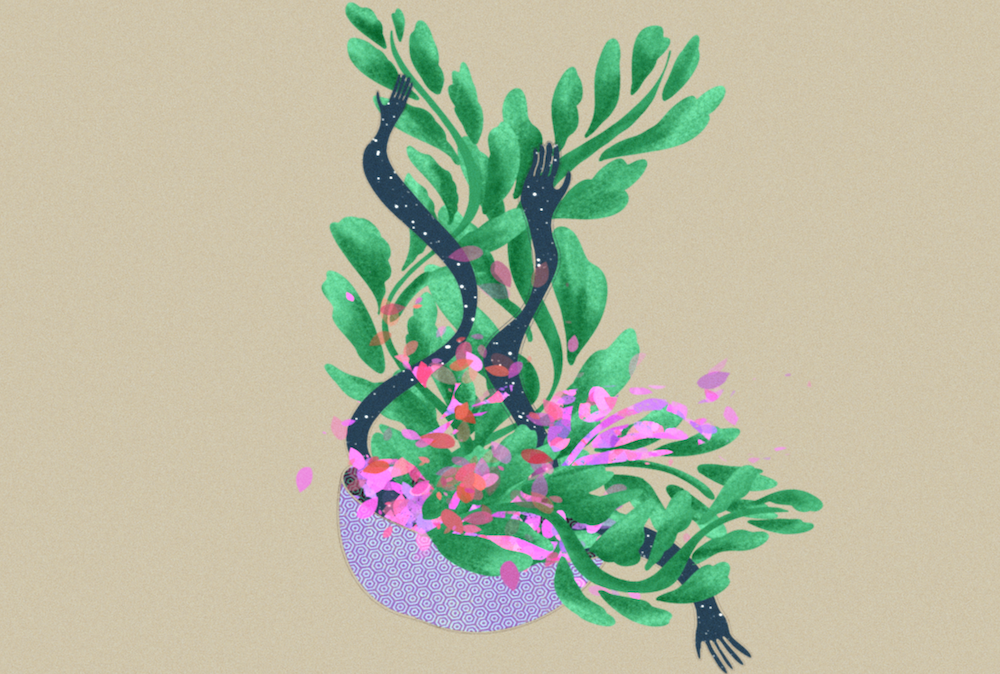By Marion Atieno
Marion Atieno is an award-winning strategist and storyteller working to restore humanity’s relationship with nature. She is currently the Global Strategist at WWF, leading the organisation’s transformation to inclusive conservation. In 2021, Marion will launch Black Earth podcast to celebrate nature and the inspirational Black women addressing the environmental crisis. Marion has received numerous awards, including a WWF Legend Award for Integrity and ‘Future Leader of International Co-operation and Development’ by the European Commission. She’s a University of Oxford alumna graduating in Global Governance and Diplomacy. Born in Nairobi, Kenya, Marion lives and loves in South London, UK.
A speculative museum from the United Nations seeks artefacts that reconcile humanity with nature.
The joint High Commissioners of United Home for Collapse and Renewal (UNHCR), Nyumba Mwendo and Fèpati Lakay, have launched the Homecoming Museum. Opening in January 2035, the museum will be a living memory to document humanity’s reconciliation with the natural world. The museum aims to do this by curating exhibitions that affirm the idea that humans can innately co-exist with the natural world.
Commissioner Lakay explains, “The Homecoming Museum is our collective space to chip away at the mindset of separation from nature which positions us as fundamentally incompatible with the natural world. A worldview that has fuelled the displacement of people and loss of place through extraction and exploitation. We must unlearn the psyches of oppression and violence we have inherited. This is a space to be good ancestors for future generations and the other 99 percent of life on earth. We can birth something new together.”
Mwendo continues, “We don’t have to struggle to be that which we already are – at one with nature. Whereas when we pillage the earth, we have to struggle to do that, really struggle…it is not our intrinsic way of being.”
The valuing of nature according to its usefulness to human beings, is one expression of the culture of separation and individualism. In response to this, the first exhibition, Utility and Relationship, aims to explore this idea that nature has value because of its utility to human beings.
The Lead Curator, Lauret Madhier says, “Over the past 30 years, both environmental activists and actors willfully engaged in environmentally destructive activities have leveraged the narrative of nature’s utility to human beings, as a way to influence their desired outcomes. Do we act to conserve nature because of its usefulness to human beings, because of the potential threat to humanity’s survival if we don’t? We want to delve deeper into this instrumental view of nature.”
Through experiences of displacement, we have come to understand that humanity’s connection to the natural environment is not rooted in utility but in relationship. We, as part of an ecosystem of life, affect and are affected by our more-than-human kin. When we see them as equals, as living beings like us, what else is there to explore in our relationship? How does that affect our understanding of belonging, identity, agency, and responsibility?”
For the exhibition, the Homecoming Museum is looking for examples of the following artifacts and artistic explorations, among other things:
- Myths and metaphors across cultures that reinforce belonging through the lens of nature;
- Creation and origin stories that view human and more-than-human species as equals;
- Inquiries that challenge utilitarian approaches in environmental geography, economics, conservation, cartography, for example, the colonial constructs of ‘wastelands’;
- Narratives of nature used to define boundaries of ‘human civilisation’ throughout cultures and histories (i.e. the contrast of ‘wilderness’ landscapes and ‘civilised’ public spaces);
- Black ecofeminist interpretations of nature;
- How art has been used throughout history as a medium to transcend/counter utilitarian views of nature;
- Representations of humans who do not prescribe to utilitarian connections with nature (i.e. tree huggers, hippies, ‘primitive’ societies);
- Expressions of intergenerational trauma in human and non-human species as a result of forced displacement from a specific physical geography
- How belonging is communicated in human and more-than-human languages.
The Homecoming Museum welcomes any medium of expression. Talk to each other, commune with the earth, look in your kitchens, listen to your dreams, search your lexicon and reach out to us. The call for contributions is open until 31 August 2034. To submit your contribution, please contact your local UNHCR Intergenerational Responsibility steward.
This page is part of UNHCR’s Project Unsung collection and portfolio. Project Unsung is a speculative storytelling project that brings together creative collaborators from around the world to help reimagine the humanitarian sector. To discover move about the initiative and other contributions in the collection, you can go to the project website here.

